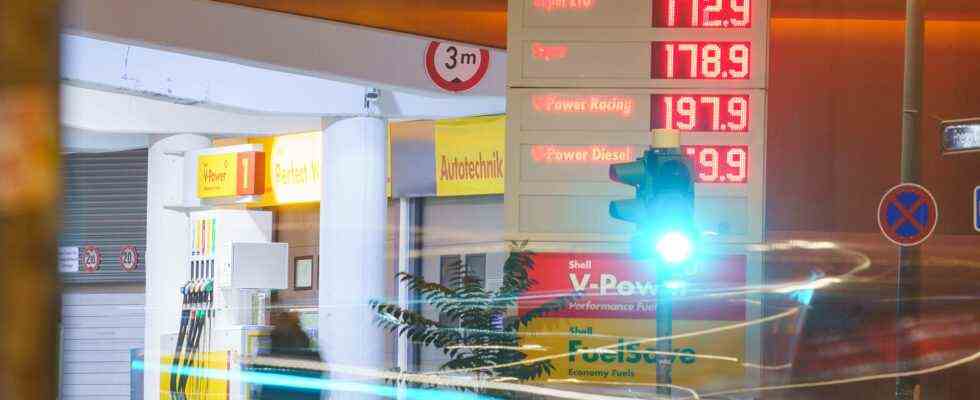Status: 10/19/2021 8:28 a.m.
The high prices for gasoline and diesel could have serious consequences for consumers, but also for companies, says the Mittelstandsverband (BVMW). He calls for a reduction in the mineral oil tax.
The Mittelstandsverband (BVMW) has called for tax relief for consumers and companies in view of the high fuel prices. The association demands that the burdens from higher fuel prices have to be cushioned. State intervention is necessary to prevent the German economy from slowing down.
“From the point of view of the middle class, the mineral oil tax should be reduced temporarily and the commuter allowance increased noticeably”, said the chief economist of the BVMW, Hans-Jürgen Völz, the newspapers of the Funke media group. In the past few weeks, rising crude oil prices and a strong dollar have meant that diesel at the pump is currently more expensive than ever, and the prices for premium gasoline are also just below the previous all-time high.
“Veritable economic crisis” feared
Taxes and duties make up a considerable part of the price of fuel. The energy or mineral oil tax is 65.45 cents per liter for premium petrol and 47.07 cents for diesel. The value added tax is added to this.
The explosion in fuel prices is a massive burden on the economy that endangers jobs, growth and prosperity, said Völz, who even sees the danger that the Corona crisis could be followed by a “veritable economic crisis” in Germany. A wage-price spiral could also be a reaction to the high fuel prices. The additional costs for transport, heating and material could lead to higher wage demands.
Is politics acting?
The discussion about high energy prices should also be a topic in the coalition negotiations between the SPD, the Greens and the FDP. Several EU countries have already announced relief for consumers in the case of high gas and electricity prices. Uniform regulation is also necessary at EU level. Federal Transport Minister Andreas Scheuer had already called for a cap on the fuel price last week. BVMW economist Völz criticizes the fact that politicians have not yet sent out any signals as to how and to what extent companies and consumers are relieved in the short term.

